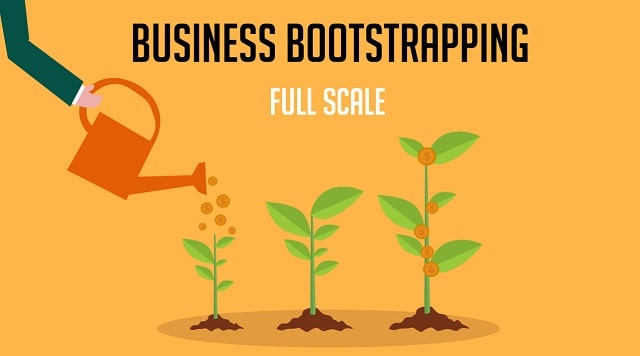
Online businesses have transformed from side hustles into global powerhouses. What started as e-commerce stores and digital services has evolved into an interconnected ecosystem where nearly anyone can build a profitable venture with the right tools, creativity, and strategy. In 2025, the digital economy continues to accelerate, reshaping how people shop, work, and play.
The Democratization Of Business
One of the internet's most powerful aspects is accessibility. Barriers to entry are lower than ever. Entrepreneurs no longer need a storefront, a warehouse, or even a large startup budget to launch a business.
• E-commerce platforms like Shopify and WooCommerce make it possible to set up stores within hours.
• Freelance marketplaces allow people to turn skills into income streams.
• Social media platforms double as both marketing and sales channels.
This democratization of business means more people can experiment, innovate, and find niches that would have been impossible to scale offline.
Subscription And Service-Based Models
The subscription economy continues to grow rapidly. Streaming services proved the model works, and now businesses in every sector, from meal kits to education, are embracing it. Consumers enjoy convenience and predictability, while businesses gain recurring revenue and stronger customer retention.
Digital services are expanding too. Online consulting, coaching, and education have become global industries, supported by remote-first work cultures and the need for flexible learning.
E-Commerce Is Still King
E-commerce remains the backbone of online business. Global sales are projected to surpass $7 trillion by 2030, driven by mobile-first adoption and international shipping solutions that make cross-border sales easier.
Trends shaping e-commerce in 2025 include:
- Personalization powered by AI to recommend products.
- Social commerce, with platforms like TikTok and Instagram fueling impulse buys.
- Sustainable shopping, as consumers increasingly demand eco-conscious brands.
Digital Marketing as the Lifeline
Online businesses succeed or fail based on visibility. Search engine optimization (SEO), paid advertising, and influencer partnerships remain critical to growth. However, consumer behavior is shifting, and authenticity now plays a central role.
Users expect brands to be transparent, interactive, and community-driven. Businesses that use content to educate or entertain, rather than just sell, win trust and long-term loyalty.
The Role Of Online Communities
Communities are the new storefronts. Successful online businesses no longer rely only on traffic—they cultivate communities that engage with their brand daily. This includes Discord servers, private Facebook groups, and niche forums where audiences connect with each other and with the business itself.
These communities not only drive engagement but also act as powerful word-of-mouth marketing engines. Customers who feel part of a brand’s ecosystem become advocates, boosting growth organically.
Gaming And Digital Platforms As Case Studies
The gaming industry offers valuable lessons for online businesses. Its ability to monetize through microtransactions, subscriptions, and communities has set the standard for digital engagement.
Some businesses even leverage gaming-related platforms to reach new audiences. For example, many players exploring entertainment and gaming opportunities visit BetWhale, a platform that highlights the growth of digital-first ecosystems. It demonstrates how online businesses can build loyal followings by combining entertainment with accessibility.
Remote Work And Global Teams
The growth of online businesses is closely tied to the rise of remote work. Teams are now distributed across continents, with freelancers and employees collaborating virtually. Tools like Slack, Zoom, and Trello make coordination seamless, while payment platforms allow instant global transactions.
For entrepreneurs, this means access to a broader talent pool and cost-effective scaling. For workers, it means more flexibility and opportunities beyond their local job market.
Challenges For Online Businesses
Despite the opportunities, challenges remain. Online competition is fierce, and standing out requires constant innovation. Cybersecurity is also a growing concern, with businesses needing to protect customer data and maintain trust.
Other hurdles include regulatory compliance, shipping logistics for e-commerce, and the rising costs of digital advertising. Success requires careful planning, adaptability, and a willingness to embrace new technologies.
The Future Of Online Businesses
Looking ahead, several trends are likely to define the next wave of digital entrepreneurship:
AI integration: streamlining customer service, marketing, and product recommendations.
Web3 technologies: giving users more ownership and decentralization in online platforms.
Hyper-personalized commerce: creating unique experiences for every individual shopper.
Green business practices: as sustainability continues to influence consumer choices.
Online businesses will become even more intertwined with daily life, expanding into industries that previously relied on offline models.
Final Thoughts
The rise of online businesses is one of the defining economic stories of the 21st century. With lower barriers to entry, global reach, and technology-driven solutions, digital ventures are more accessible than ever. From e-commerce stores to digital platforms and subscription services, the opportunities continue to grow.
For entrepreneurs, the message is clear: adapt, innovate, and connect with communities. For consumers, the future promises more convenience, personalization, and choice. For the global economy, the ongoing boom in online businesses is proof that the digital revolution is only beginning.

